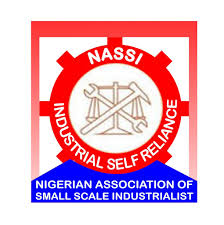The Nigerian Association of Small Scale Industrialists (NASSI), Delta State chapter, is intensifying efforts to consolidate its presence and boost opportunities for micro, small, and medium enterprises (MSMEs) across the state.
Princewill Ojeh, recently re-elected as Chairman of NASSI Delta, explained that the association—backed by federal law—was established to provide a voice and platform for small-scale industrialists who form the backbone of Nigeria’s production economy. Unlike large corporations such as PZ or SCOA, NASSI caters exclusively to enterprises engaged in grassroots production and processing.
“From inception in the 1970s, the law that created NASSI was designed to give ordinary Nigerians the capacity to start and grow their own businesses,” Ojeh said. “That vision remains central to what we are doing today.”
Over the years, NASSI has maintained representation on key boards and agencies, both locally and internationally, including incubation centres and the United Nations Industrial Development Organisation (UNIDO). In Delta State, however, the association’s growth faced setbacks due to prolonged internal disputes.
Ojeh recalled how factional divisions once left the state chapter polarized until the intervention of the Ministry of Trade and Investment, which facilitated reconciliation. Senior members later persuaded him to take up leadership to stabilize the body. “They believed my background and experience could bring peace and reposition NASSI. That’s how I emerged as chairman,” he noted.
The most recent election, held on August 17, 2025—the very day the previous tenure expired—was conducted under constitutional guidelines, with delegates from across Delta’s local government areas participating. Ojeh emphasized that the process was transparent, widely publicized, and peaceful, producing a leadership team unopposed and committed to consolidation.
With the crisis now behind them, Ojeh says the Delta chapter is focusing on awareness creation and ensuring that only verified members benefit from government-backed initiatives. Through partnerships with the Bank of Industry (BOI), the association is processing nearly 500 applications for low-interest loans to support small-scale entrepreneurs. Several beneficiaries, he confirmed, have already received disbursements.
“Our goal is to open access to federal financial facilities and ensure Deltans can build sustainable businesses,” he said, stressing that NASSI is not a closed group but open to all productive ventures. Plans are also underway to introduce annual subscriptions and ID cards to strengthen membership accountability.
On government relations, Ojeh described the current collaboration with the Ministry of Trade and Investment as “excellent,” praising the commissioner’s willingness to work with the association. He also commended Governor Sheriff Oborevwori for creating an enabling environment, while urging the state to deepen its support for small industries.
NASSI Delta is also designing training programmes for retirees and soon-to-retire civil servants, aimed at equipping them with entrepreneurial skills to sustain livelihoods after service.
Looking ahead, Ojeh urged Deltans to embrace NASSI’s opportunities. “This is not a secret society; it’s for everyone engaged in production. Join us, key into our programmes, and together we can strengthen both the state and Nigeria’s economy.”

